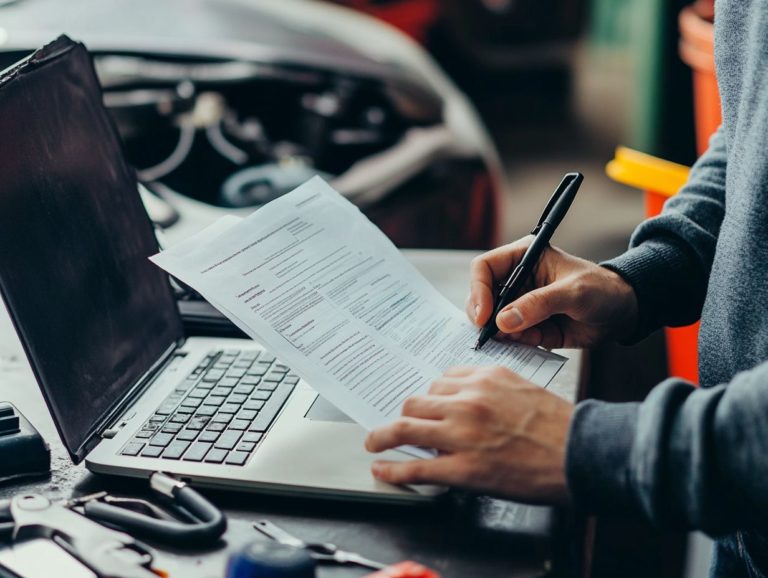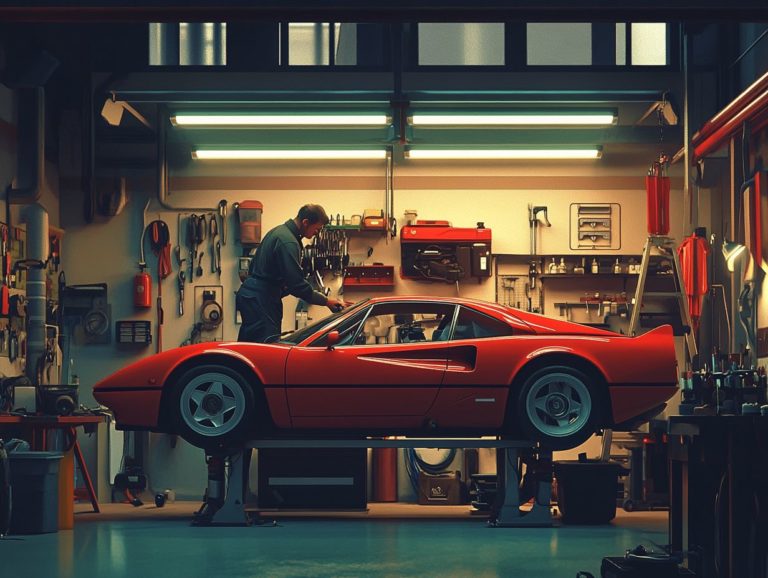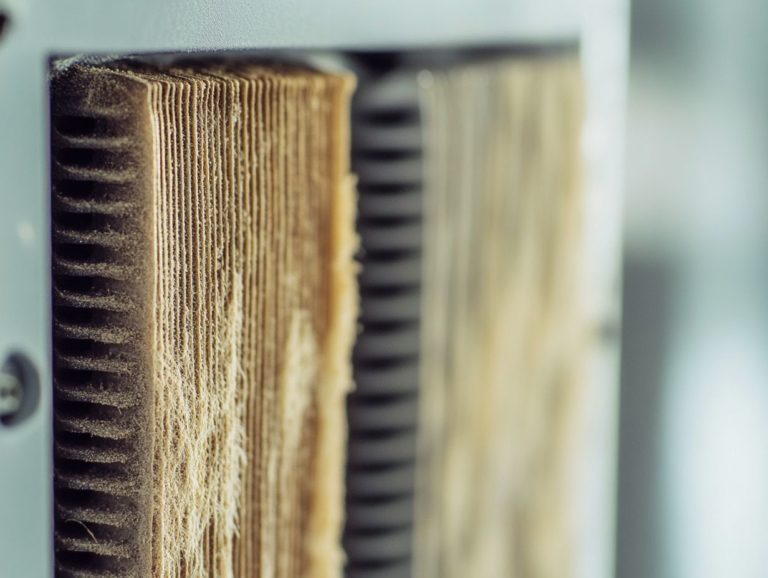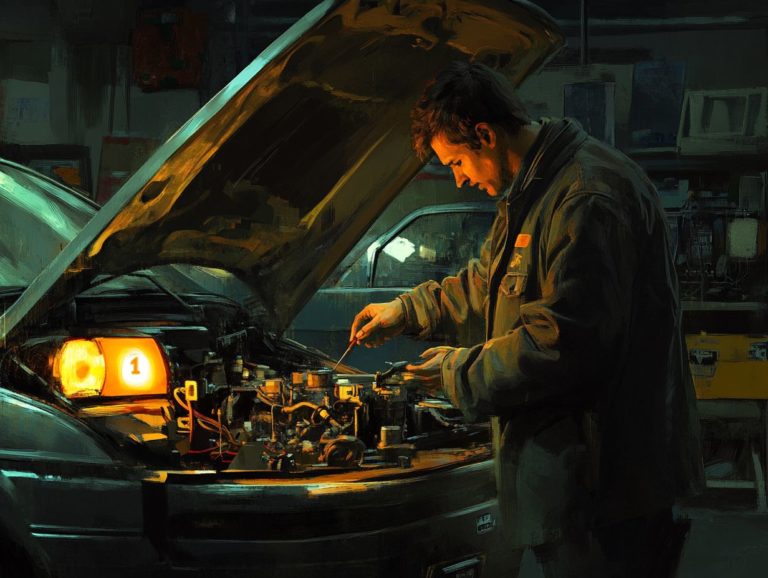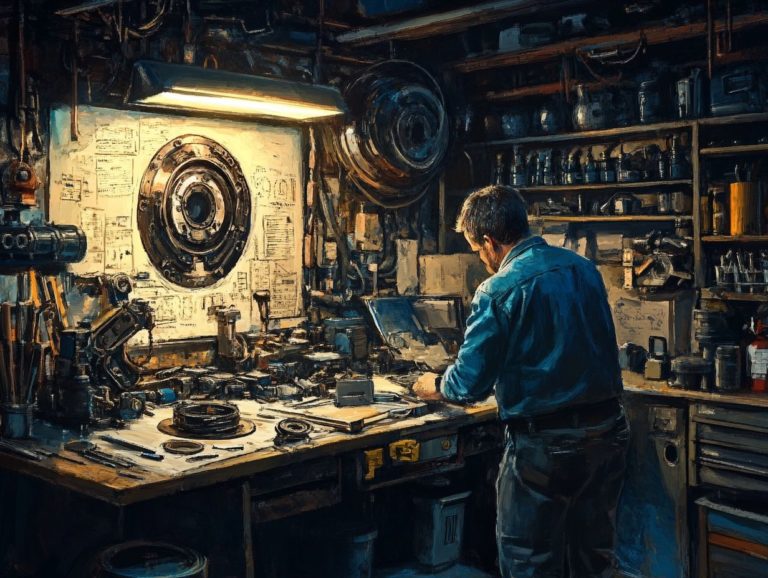5 Essential Checks to Avoid Common Repairs
Maintaining your vehicle is essential for ensuring its longevity and optimal performance. Yet, many drivers often overlook simple checks that could prevent costly repairs in the future.
From assessing tire health to monitoring oil levels, this article outlines five essential checks that every car owner should make regularly. It delves into the significance of these checks, highlights the common repairs they can help you avoid, and discusses how they can save you money over time.
Are you ready to keep your car running smoothly? Let s dive right in!
Contents
Key Takeaways:
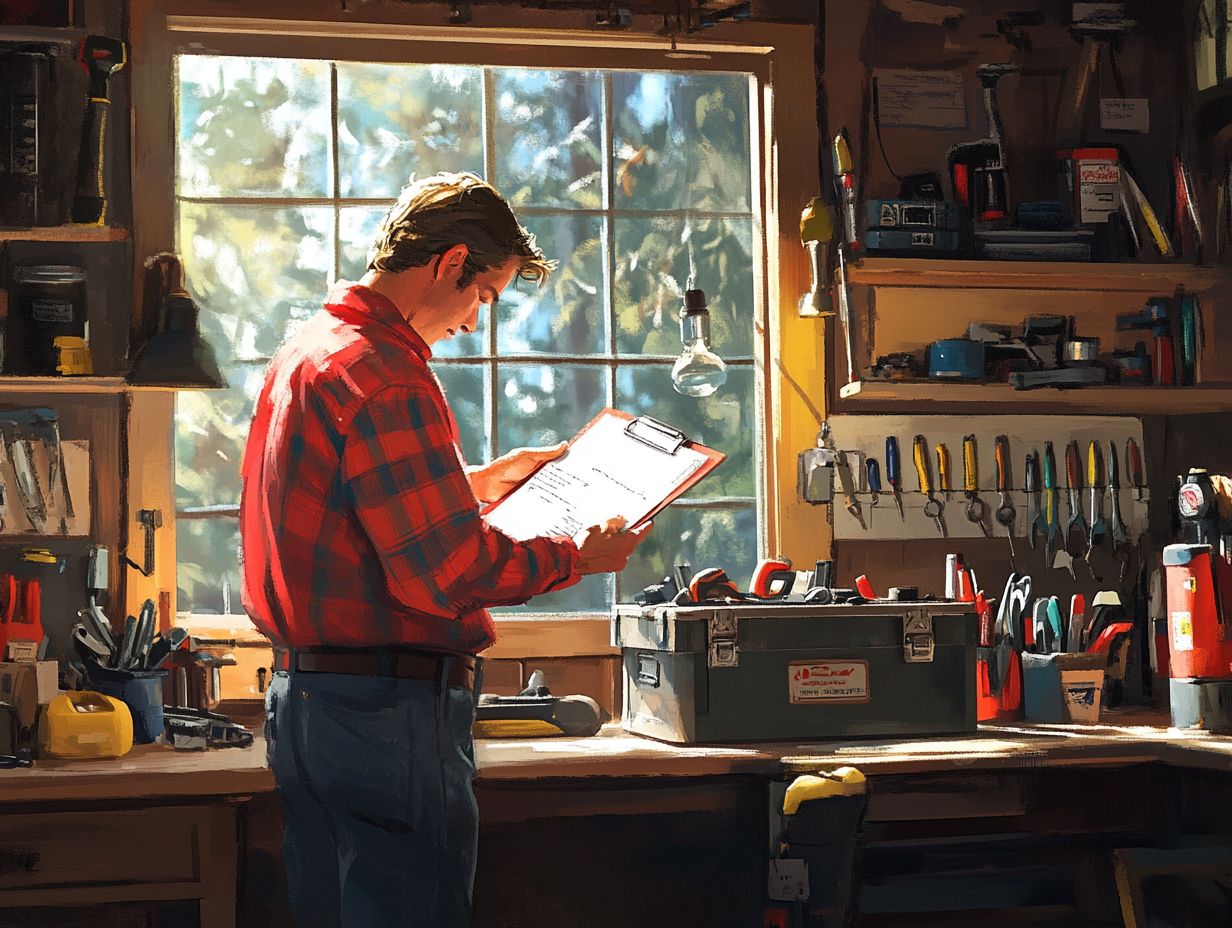
- Regularly checking your tires can prevent common tire issues and ensure safe driving.
- Keeping an eye on oil levels can prevent engine damage and costly repairs.
- Regularly checking your battery can prevent unexpected breakdowns and extend its lifespan.
1. Regularly Check Your Tires
Regularly checking your tires is essential for maintaining your vehicle’s performance and safety. It prevents performance issues and enhances the condition of your equipment.
It’s vital to monitor not just the tread depth but also the pressure levels, as both play a crucial role in ensuring optimal handling and fuel efficiency. Keep an eye out for signs of wear and tear, like uneven tread patterns or bulges, as these can signal potential problems before they escalate into costly repairs or safety hazards.
By incorporating regular inspections into your maintenance routine, you can extend the lifespan of your tires and plan for timely replacements. This ultimately leads to a more efficient operation and peace of mind.
2. Keep an Eye on Your Oil Levels
Keeping an eye on your oil levels is a smart way to protect your engine and your wallet! Monitoring your oil levels is essential for preventive maintenance and directly influences both engine performance and the longevity of your vehicle.
Timely oil checks help you spot potential issues before they escalate. To check your oil levels, locate the dipstick, pull it out, and give it a good wipe before reinserting it for an accurate reading.
When checking your oil, look for:
- Color: Fresh oil is clear and amber.
- Consistency: Dirty oil is dark and gritty.
Sticking to the manufacturer s specifications for oil type and change intervals is crucial. Using inferior oil can jeopardize engine health and lead to expensive repairs down the line.
3. Check Your Battery
Regularly checking your battery is essential for ensuring your vehicle performs reliably and avoiding those unwelcome breakdowns especially in settings with heavy machinery, where downtime can be a costly affair.
To effectively assess your battery’s condition, begin by inspecting the fluid levels. Low electrolyte levels can lead to diminished performance. Then, take a close look at the terminals for any signs of corrosion. That buildup can seriously hinder electrical flow and impact your starting power. Ensuring that all connections are tight and free of grime is also crucial for optimal functionality.
Embracing preventive maintenance for your battery allows you to identify potential issues before they escalate. This can significantly extend its lifespan. These regular checks contribute to the overall health of your vehicle or machinery, facilitating smoother operations and minimizing the risk of unexpected interruptions.
4. Inspect Your Brakes
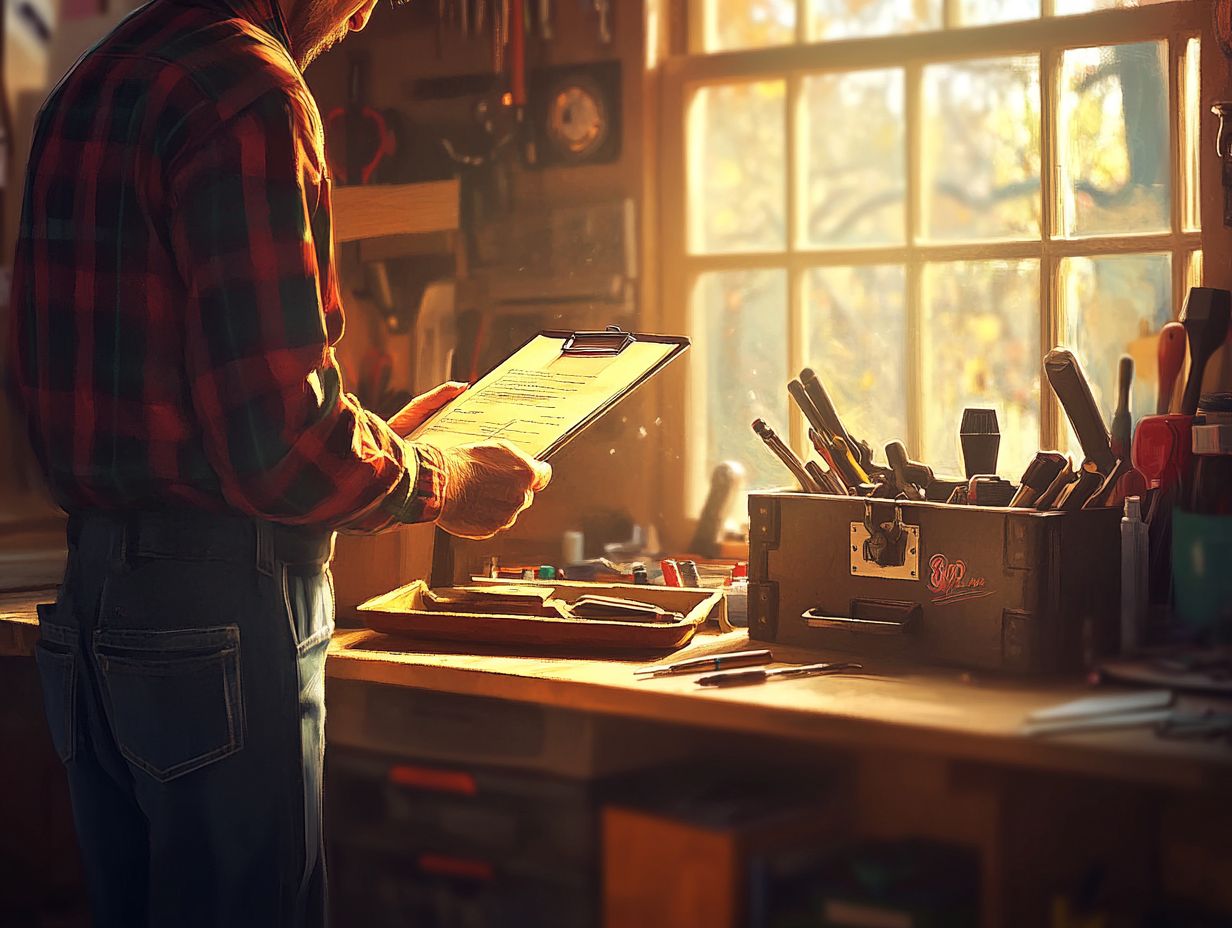
Inspecting your brakes regularly is crucial for ensuring safety and preventing potential accidents, especially in high-stakes environments like construction sites where heavy machinery operates.
Neglecting routine brake maintenance can lead to serious major equipment issues. This increases risks for both operators and nearby workers.
To conduct a proper brake inspection, start by examining the brake pads for wear and tear. Make sure they haven t thinned beyond safe limits. Next, assess the rotors for any signs of scoring or uneven surfaces, as these can directly impact how well the brakes work.
It s also essential to check the brake fluid levels. Low fluid may signal a leak or a compromised system function. Act now to enhance your equipment’s performance and create a safer workplace!
By implementing these measures, you not only enhance the performance and longevity of your equipment but also support broader maintenance strategies. This ultimately contributes to a safer work environment.
5. Monitor Your Fluid Levels
Monitoring your fluid levels is an essential element of a comprehensive maintenance routine. This safeguards against equipment malfunctions and prolongs the service life of heavy machinery.
Whether you re checking the oil for proper viscosity, ensuring the coolant is at optimal levels to prevent overheating, or verifying that the brake fluid is maintained for safety, each fluid plays a crucial role in ensuring your equipment operates seamlessly.
Checking these fluids informs your maintenance schedules. It also enables you to identify potential issues before they escalate into costly repairs.
By remaining vigilant about fluid conditions, you can ensure that your equipment performs at its peak. This minimizes downtime and boosts productivity on the job site.
Why Are Regular Checks Important for Car Maintenance?
Regular checks are essential for effective car maintenance. They allow you to minimize repair costs and enhance vehicle performance by identifying potential issues before they escalate into major problems, especially for used cars and construction machinery.
Establishing a routine maintenance schedule not only prolongs your vehicle’s lifespan but also ensures that you and your operators feel secure, whether on the road or at the job site.
By prioritizing these inspections, you can promptly address concerns like engine troubles and brake failures, as well as implement quick fixes for common car issues. This avoids the financial burden of unexpected and costly repairs.
Following a systematic maintenance plan significantly contributes to fuel efficiency. This ensures that your vehicles operate optimally without unnecessary strain.
This proactive approach promotes safety for everyone involved and boosts your confidence in the equipment’s reliability. Ultimately, it creates a more productive work environment.
What Are the Most Common Repairs That Can Be Avoided with Regular Checks?
Many common repairs can be easily avoided through diligent preventive maintenance. For instance, knowing 5 tips for DIY common car repairs can help with brake replacements and engine repairs, leading to substantial savings on repair expenses over time.
Regular checks on critical components like tires and batteries not only enhance your vehicle s performance but also help prevent costly disruptions.
For instance, if you neglect to monitor tire tread, you might face unexpected blowouts, potentially racking up an average repair cost of $300 or more, depending on your vehicle. Likewise, a worn-out battery often easily identified through simple tests can leave you stranded, with a replacement costing around $150 on average.
Statistics reveal that conducting routine inspections can cut these types of expenses by as much as 50%. This clearly illustrates the financial benefits of maintaining a disciplined preventive maintenance approach.
How Can Regular Checks Save You Money in the Long Run?
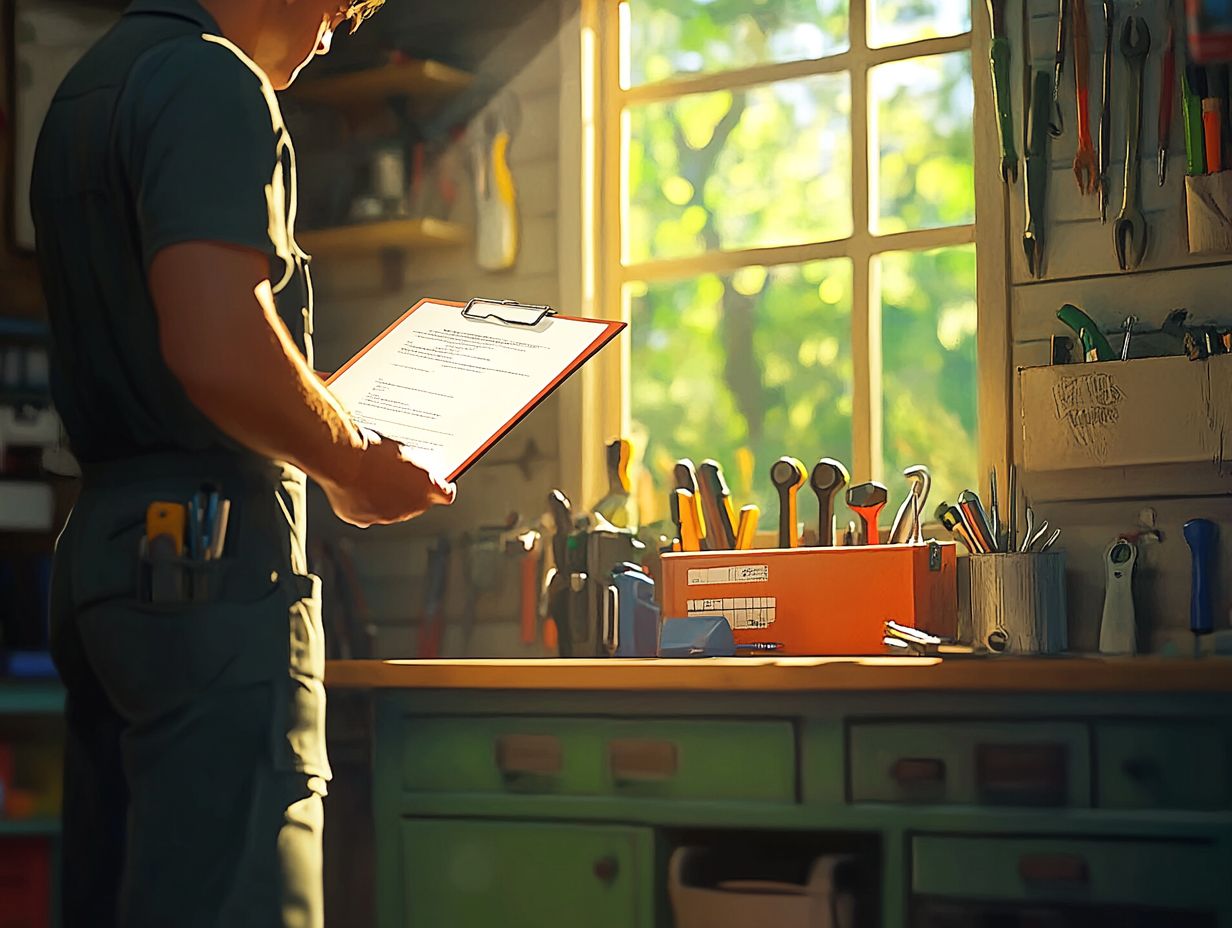
Regular vehicle checks can save you big bucks! They prevent costly repairs and boost machinery productivity, especially for construction companies relying on heavy machinery. Being aware of common repairs that can save you money is also crucial in maintaining your investments.
By sticking to a consistent maintenance schedule, you can reduce trips to the repair shop saving both time and money. This proactive strategy not only lowers the chances of unexpected breakdowns but also extends the life of your critical assets.
Feedback from technicians during routine inspections provides valuable insights that help optimize operations, ensuring minor issues don t spiral into major expenses.
In short, the cost of regular maintenance is a small price to pay compared to potential repair bills, making it a wise investment for any fleet manager focused on sustainability and efficiency.
What Are the Warning Signs of Potential Car Issues?
Being aware of warning signs enables you to identify car issues before they escalate. This allows for timely maintenance checks and inspections that help prevent performance problems and safety hazards.
Common indicators like unusual noises, unexpected dashboard lights, or difficulties in handling should raise red flags. For instance, if you hear a sudden grinding sound when braking, it could mean your brake pads are worn out. A check engine light a warning light on your dashboard indicating a problem with the engine or emissions may require your immediate attention.
Recognizing these signs is essential. It allows you to adjust maintenance routines accordingly. Addressing issues early enhances your vehicle’s overall reliability, ensuring safer journeys and avoiding costly repairs. For more insights, check out these 5 essential tips for common car maintenance.
How Often Should You Conduct These Essential Checks?
Determining how often to conduct essential checks is crucial for establishing an effective maintenance schedule. This should align with your vehicle’s specific needs and usage patterns, especially for heavy machinery in construction.
By understanding the various factors that influence these needs, you can implement a tailored routine. This extends the machinery s lifespan and enhances performance and safety. Daily checks might include visually inspecting key components like tires and fluid levels.
Weekly maintenance could involve more thorough examinations of the machinery’s lifting systems and filters. Monthly evaluations should account for the specific conditions in which your machinery operates, considering environmental stressors like dust or humidity requiring more frequent servicing or adjustments.
This systematic approach ensures that every piece of equipment receives optimal care, perfectly matched to its unique demands.
What Are the Benefits of Regular Car Maintenance?
Engaging in regular car maintenance offers a wealth of benefits, including improved vehicle performance, enhanced safety, and increased productivity of your machinery, while keeping costs in check through the use of high-quality spare parts.
When every component operates at its best, the likelihood of unexpected breakdowns significantly reduces, creating a safer driving environment. Studies indicate that vehicles undergoing routine checks are 30% less likely to be involved in accidents stemming from mechanical failures.
Consistent maintenance not only extends the lifespan of vital components like engines and transmissions but also results in substantial savings on repair costs. Statistics show that those who take a proactive approach to vehicle maintenance experience far lower expenses, with some reporting up to 50% savings compared to those who neglect regular upkeep.
Frequently Asked Questions
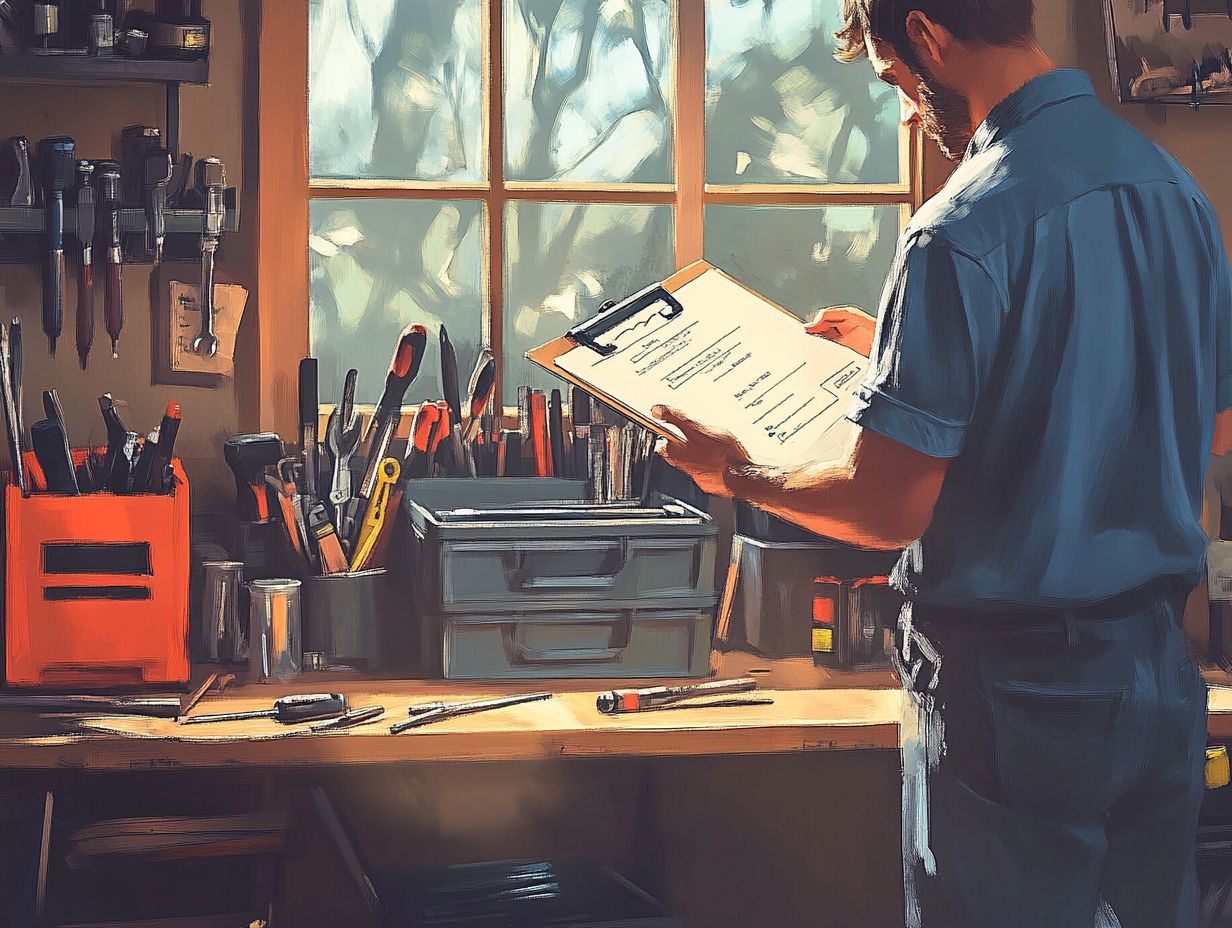
What are the 5 essential checks to avoid common repairs?
There are five essential maintenance tips to avoid repairs. They are tire pressure, battery inspection, engine oil checks, brake pad assessments, and hose or belt leak inspections.
Why is it important to check tire pressure?
Checking tire pressure regularly helps maintain proper traction and handling of your vehicle. This reduces the risk of accidents and costly repairs.
How does inspecting the battery help?
A weak battery can cause problems, like difficulty starting your engine or dim headlights. Regular inspections can catch issues early, avoiding expensive replacements or tow services.
Why is checking engine oil important?
Engine oil keeps your engine running smoothly. Neglecting it can lead to serious engine damage and expensive repairs. Make it a habit to check your oil at least once a month!
How can checking the brake pads help?
Worn brake pads make your brakes less effective, increasing the risk of accidents. Regular checks and timely replacements can save money and ensure your safety.
Why look for leaks in hoses and belts?
Hoses and belts are vital for your engine and cooling system. Leaks can cause overheating and expensive repairs. Regular inspections can catch leaks early and save you money!

